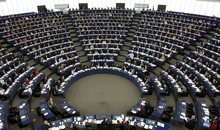
Trump rejects EU's zero-to-zero tariff offer: Demands $350 billion in US energy purchases
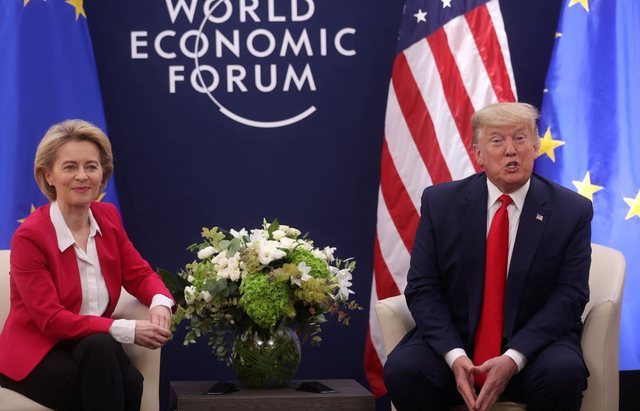
US President Donald Trump has openly rejected the European Union's offer to mutually remove tariffs on cars and industrial goods, setting Brussels a clear condition: purchasing US energy worth $350 billion.
Trump's comments came during a White House press conference, where he was asked about the proposal by European Commission President Ursula von der Leyen. She had previously said the EU was ready to remove tariffs if the US did the same. But the US president rejected the idea, saying: "No, it's not enough."
“We have a $350 billion trade deficit with the European Union, and it needs to go away quickly. One way to do that is to get them to commit to buying our energy,” Trump said. “They can buy it, and we can fix this problem in a week.”
The statement follows the Trump administration's decision last week to impose 20% tariffs on the EU and a minimum 10% tax on other trading partners. As a result, global markets have suffered heavy losses, with European stocks posting their deepest declines since the start of the Covid-19 pandemic.
Trump appeared at the conference alongside Israeli Prime Minister Benjamin Netanyahu, who was in Washington for talks on tariffs and economic cooperation. The US president stressed that he was willing to reach a deal with the EU as long as it helped close the deficit through purchases of American energy.
Although the idea of increasing purchases of liquefied natural gas from the US has been discussed earlier by Von der Leyen, the United States has not yet provided clarity on the possible forms of such an agreement.
Asked whether the tariffs are temporary or permanent, Trump said they could be both: "If we can make a really fair deal for the United States, then yes. It's America First now."
In further statements, Trump demanded that the EU lower its non-monetary standards that, according to him, hinder the entry of American goods into the European market. He alluded to a return to the economic model of the last century: “Until 1913, the US was the most powerful country and everything was based on tariffs. We had no income tax. Then someone thought of taxing our own people instead of taxing the countries that were exploiting us.”
This latest showdown shows that trade relations between the US and the EU remain tense and a clear agreement still seems far away.
Latest news


Posta e mëngjesit/ Me 2 rreshta: Çfarë pati rëndësi dje në Shqipëri
2025-05-09 06:45:46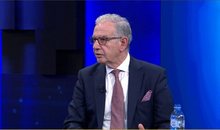
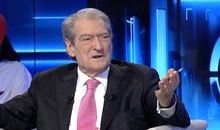
How did LaCivita change the DP campaign? Berisha: He studied the opponent
2025-05-08 22:49:51
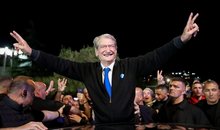
David defeats Goliath
2025-05-08 22:15:50

Journalist: There are SPAK infiltrators in party headquarters
2025-05-08 21:55:15
Who is the new Pope?
2025-05-08 21:48:13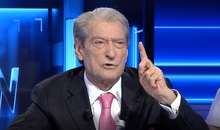
Berisha finally reveals when he will retire from politics
2025-05-08 21:33:46

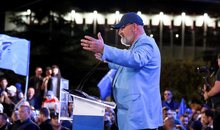
LaCivita in Lezha: Albanians will fire Edi Rama from his job
2025-05-08 21:11:20


Berisha: LaCivita chose us because he believes in Reagan's program
2025-05-08 20:48:40
He rejected America to serve Pogradec, Genti Çela tells about life in "Elevate"
2025-05-08 20:26:28

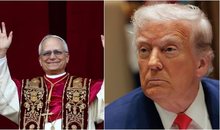


Pope Leo XIV greets the faithful for the first time in St. Peter's Square
2025-05-08 19:29:33
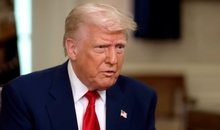



Photo session with LaCivitta in Tirana: For Great Albania
2025-05-08 18:40:18
Source: DASH decision a personal victory for Berisha
2025-05-08 18:30:10
Take off those crazy glasses and see where you've taken him?
2025-05-08 18:02:47
LDK files criminal charges against members of the incumbent Government
2025-05-08 18:02:00






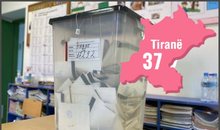
BIRN analysis: Tirana, the determining district for the future majority
2025-05-08 16:04:03




Chris LaCivita's contract with the DP, Berisha: 100% correct and clean
2025-05-08 15:11:11

"These are the peak days", Berisha reveals when he will travel to the USA
2025-05-08 14:45:25
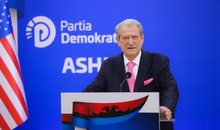

Endless boxes with filled-in ballots, DP demands separation of votes from Greece
2025-05-08 14:11:12


Photo/ Who are the 3 associates of Talo Çela arrested in Dubai?
2025-05-08 13:37:09

Hetimi për krimet zgjedhore, Altin Dumani zbarkon në Prokurorinë e Shkodrës
2025-05-08 13:06:21
DASH paves the way for Berisha, Alizoti: Great news on the eve of Great Albania!
2025-05-08 13:03:48

"Freedom works", DP welcomes the US position
2025-05-08 12:48:07

Black smoke rises from the Sistine Chapel, the Vatican still without a Pope
2025-05-08 12:26:18

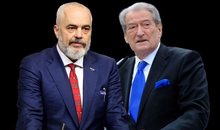



Davide Pecorrelli extradited to Albania
2025-05-08 11:29:04
'May 11, Albania will react', Xhaferri: Electoral criminals will pay
2025-05-08 11:21:46
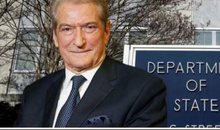
Gjin Gjoni: Non Grata fell, Rama should get ready to go to McGonigal
2025-05-08 11:01:54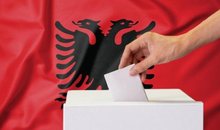
May 8th deadline for immigrants to vote in Greece extended by one day
2025-05-08 10:48:42
Collapse of massive chrome structure, still no trace of 29-year-old
2025-05-08 10:40:04
Vehicle bursts into flames in Paris Commune
2025-05-08 10:25:43
He gave land to his father and cousin, Basir Çollaku denounces the SP candidate
2025-05-08 10:16:16
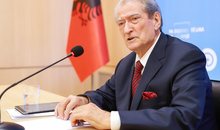
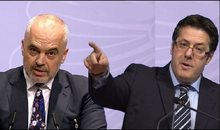


Electoral Crimes/ BKH agents and Police conduct checks in Shkodra
2025-05-08 09:19:13
3 associates of Talo Çela arrested in Dubai
2025-05-08 09:02:28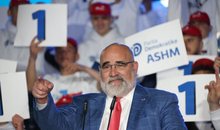
Mouse in the owl's claws, Chris LaCivita responds directly to Rama
2025-05-08 08:45:40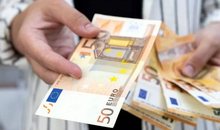
Foreign exchange, how much foreign currencies are sold and bought today
2025-05-08 08:30:38
BIRN: Organized crime, the 'invisible party' of the Durrës elections
2025-05-08 08:26:35
Horoscope, what do the stars have in store for you today?
2025-05-08 08:08:15
Cloudy and rainy, what the weather is expected to be like throughout the day
2025-05-08 07:52:13
Posta e mëngjesit/ Me 2 rreshta: Çfarë pati rëndësi dje në Shqipëri
2025-05-08 07:40:16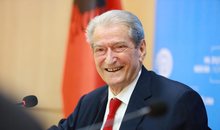
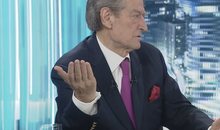

Rama attacks Bardhi: Fier cannot be represented by the world's gas
2025-05-07 22:36:22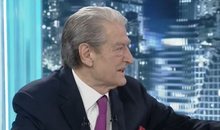

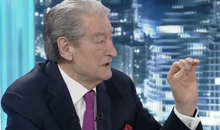
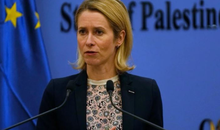
EU calls on Israel to lift humanitarian blockade in Gaza
2025-05-07 21:42:34
"Russia is "asking for a lot"! Vance calls for direct Moscow-Kiev talks
2025-05-07 21:20:16





Bank of Albania sets limits on home loans, Sejko: The maximum will be 85%
2025-05-07 20:16:10

